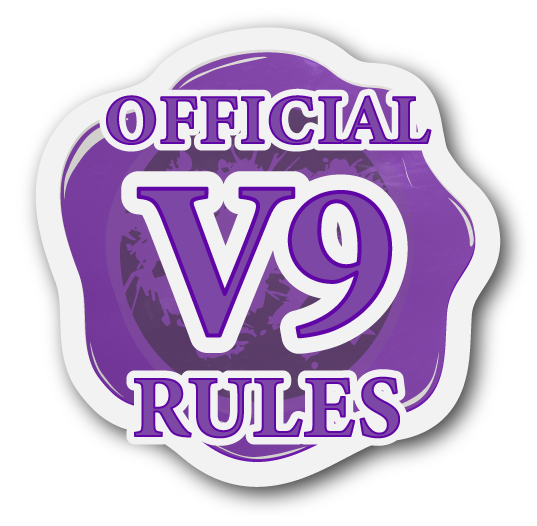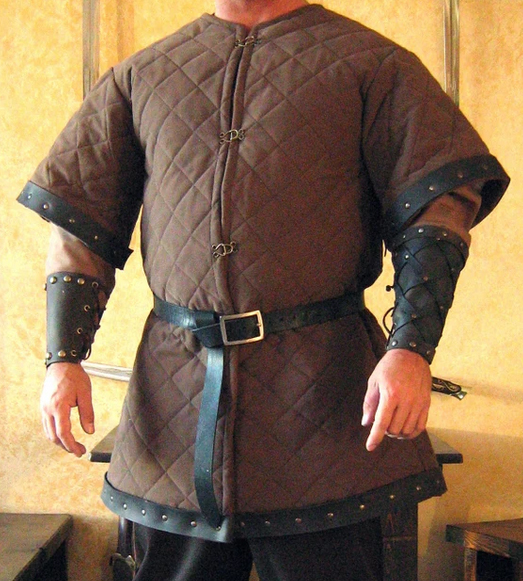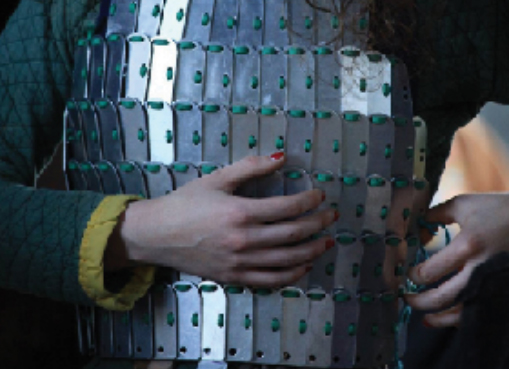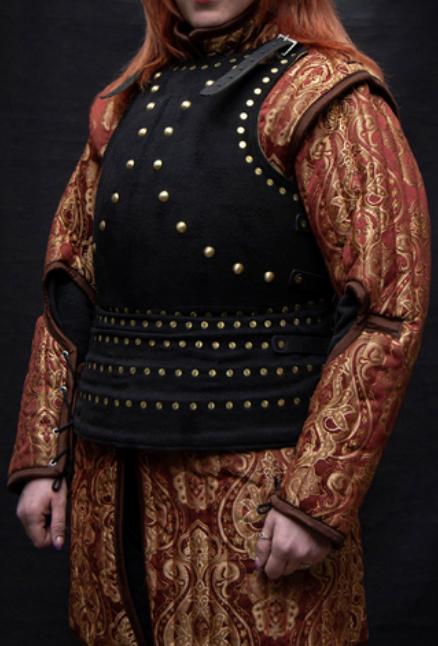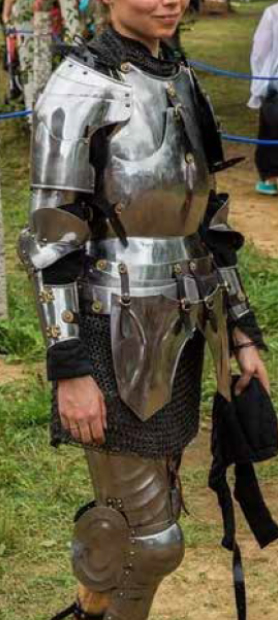Difference between revisions of "V9: Armor Styles"
m (Protected "V9: Armor Styles" ([Edit=Allow only administrators] (indefinite) [Move=Allow only administrators] (indefinite))) |
m |
||
| Line 1: | Line 1: | ||
{{V9}} | {{V9}} | ||
| − | <onlyinclude>===Additional Requirements By Style=== | + | <onlyinclude>====Additional Requirements By Style==== |
| − | ====Tier 1==== | + | =====Tier 1===== |
{{:V9: Cloth/Padded Armor}} | {{:V9: Cloth/Padded Armor}} | ||
{{:V9: Catch-All (Tier 1)}} | {{:V9: Catch-All (Tier 1)}} | ||
| − | ====Tier 2==== | + | =====Tier 2===== |
{{:V9: Light Leather, Hides, And Furs}} | {{:V9: Light Leather, Hides, And Furs}} | ||
{{:V9: Ringmesh, Sharkmail, and Similar}} | {{:V9: Ringmesh, Sharkmail, and Similar}} | ||
{{:V9: Synthetic Chainmail}} | {{:V9: Synthetic Chainmail}} | ||
| − | ====Tier 3==== | + | =====Tier 3===== |
{{:V9: Strong Leather, Hides, And Furs}} | {{:V9: Strong Leather, Hides, And Furs}} | ||
{{:V9: Rigid, High-Density, Non-Metal}} | {{:V9: Rigid, High-Density, Non-Metal}} | ||
{{:V9: Metal Chainmail}} | {{:V9: Metal Chainmail}} | ||
| − | ====Tier 4==== | + | =====Tier 4===== |
{{:V9: Catch-All: Metal And Metal Augments}} | {{:V9: Catch-All: Metal And Metal Augments}} | ||
| − | ====Tier 5==== | + | =====Tier 5===== |
{{:V9: Scale}} | {{:V9: Scale}} | ||
{{:V9: Splint, Butted Plate, Kikko}} | {{:V9: Splint, Butted Plate, Kikko}} | ||
| − | ====Tier 6==== | + | =====Tier 6===== |
{{:V9: Lamellar and Laminar}} | {{:V9: Lamellar and Laminar}} | ||
{{:V9: Brigandine}} | {{:V9: Brigandine}} | ||
{{:V9: Plate}}</onlyinclude> | {{:V9: Plate}}</onlyinclude> | ||
{{V9 Armor Styles}} | {{V9 Armor Styles}} | ||
Revision as of 17:41, 11 January 2023
- The Amtwiki is the official home and primary source for Amtgard V9 Rules as of February 25, 2023.
- These rules are currently in Open Alpha Playtest. See the Playtest Disclaimer for more details.
- To learn more about Amtgard V9 Development, please visit Amtgard.com.
- To view the current Amtgard V8 ruleset, please see the Amtgard V8 Rulebook.
Contents
Additional Requirements By Style
Tier 1
Cloth/Padded Armor
This style includes armor made of fabric, padding, and/or synthetic equivalents.
- Is a Tier 1 armor style.
- Must meet the Universal Equipment Requirements.
- Minimum Material Thickness of 1/16" (1.60mm)
Tier 2
V9: Light Leather, Hides, And Furs V9: Ringmesh, Sharkmail, and Similar V9: Synthetic Chainmail
Tier 3
V9: Strong Leather, Hides, And Furs V9: Rigid, High-Density, Non-Metal V9: Metal Chainmail
Tier 4
V9: Catch-All: Metal And Metal Augments
Tier 5
V9: Scale V9: Splint, Butted Plate, Kikko
Tier 6
Lamellar and Laminar
This style includes armor that is constructed from numerous metal plates, connected to each other in an overlapping fashion by cord, chain link, or similar methods. Examples may include lorica segmentata, manica, okegawa-dō, anima, and other styles. Unlike Heavy Scale, the plates of this type of armor are firmly connected to each other. Mobility is provided by the small amount of flex and slack in the attachment between the individual plates.
- Is a Tier 6 armor style.
- Must meet the Universal Equipment Requirements.
- Plates must overlap by at least 10%.
- Plates connect directly to each other without any backing for support.
- Metal must at least equivalent to Aluminum in density and durability. (2.7g/cm3)
- The standard for Material Thickness is based on the metal used:
- Aluminum Plates: 16ga (0.051") (1.291mm)
- Steel Plates: 18ga (0.048") (1.214mm)
Brigandine
This style includes armor that is constructed from numerous shaped and fitted metal plates solidly connected along a supporting shell of heavy cloth (such as canvas, denim, or velvet) in such a way that when worn all plates are held together firmly and follow the general contours of the body. The plates are typically placed on the inside of the shell, presenting only fabric and rivets to the observer for a very clean and customizable appearance.
- Is a Tier 6 armor style.
- Must meet the Universal Equipment Requirements.
- 75% of plates must overlap by at least 10% of their surface.
- Plates need only be attached along one edge but must be held firmly against each other when the armor is worn.
- Metal must at least equivalent to Aluminum in density and durability. (2.7g/cm3)
- The standard for Material Thickness is based on the metal used:
- Aluminum Plates: 16ga (0.051") (1.291mm)
- Steel Plates: 18ga (0.048") (1.214mm)
Plate
This style includes armor is constructed from large pieces of metal connected together to form a solid shell that spreads impact over a large surface area. Plate armor will not deform locally when struck, and will instead behave as a single contiguous whole. The individual metal pieces are shaped and fitted to articulate together and follow the contours of the body.
- Is a Tier 6 armor style.
- Must meet the Universal Equipment Requirements.
- 75% of the plates used must be large enough to cover at least 10% of the full Hit Location. Joint articulations are exempt from this requirement.
- Metal must at least equivalent to Aluminum in density and durability. (2.7g/cm3)
- The standard for Material Thickness is based on the metal used:
- Aluminum Plates: 16ga (0.051") (1.291mm)
- Steel Plates: 18ga (0.048") (1.214mm)
Armor Styles Tier 1: Cloth/Padded Armor
Tier 2: Light Leather · Butcher's Mail / Sharkmail
Tier 3: Heavy Leather · Chainmail · Rigid Non-Metal Armor
Tier 4: Light Scale
Tier 5: Heavy Scale · Butted Plate
Tier 6: Lamellar and Laminar · Brigandine · Plate
Special: Ambiguous Armor
Physical Armor Gameplay Rules · Construction Rules · Rating Armor & Calculating Armor Points · Armor Styles
Armor General Rules · Natural Armor · Physical Armor
Equipment Equipment Basics · Equipment Use Terms · Weapons · Shields · Armor · Color Code · Visual Indicators
